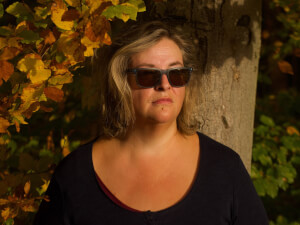In the face of a new paradigm of art working on and collaborating with living entitie we can question if any claim to a continuity to the Modern Western notion of the “fine arts” being free of any practical or moral obligation as a zone of play and “non-interested” (“interesselos” according to Kant) experimentation and pleasure can be accepted.
Either this is the one singularity of a new artistic paradigm finally calling this definition and all its dangerous and hypocritical privileges into question, or we face the danger of an utterly cynical mode of operation calling living matter just another “material” the artist can use as he or she sees fit.
So if we can find an (un)common ground in the statement that the conditions of “bio-art” are indeed radically different from pervious paradigms of the so called “fine arts” we must ask for an ethical regime this practice has to endorse in order to fulfill the politically and socially critical functions it so often lays claim to.
I would like to contribute to this re-evaluation of “bio-art” in several functions: as a trained philosopher with a background in ethics, biopolitics and scholarship in Kant; as collaborator of a highly complex bio-art project since 2018 (Spiess/Strecker) and as a working artist whose main focus lies in the creation of hybrid urban games and fluid spacetime installations. Also contemporary art forms consciously refraining from the manipulation of organic matter will have to define themselves in relation to the paradigm shift bio-art may be a powerful motor of, but not the only site it plays out on.
What is the (un-)common ground of the new arts of the 21st century?
I would like to start with the re-definition of the spatial concepts, norms and modes of operation all contemporaries arts are at once submitted to and responsible for. As this re-defintion of all spatial concepts is common to both bio-art and other art forms one could call both types the “immersive arts”. What kinds of spaces do those immersive arts create, hint at, enable and invoke?
Bio-art manifests a profound tendency of blurring all boundaries between the artist and their work, the product and the process, the living and the not quite living.
A term with deep affinity to an ecological definition of space that is never empty, never fully controlled, never owned but just one legal human entity is the term of hosting. Hosting provides a scene of transgression, as it provides a frame and a context for events and processes that often blur the limits between the host and the hosted.
Yet it is also an agency of imposing boundaries whose transgression comes with a price those hosted cannot ignore.
If the since the Deleuzean turn to immanence rejected notion of transcendence has a comeback it might be via the spatial regime of hosting as basic property of the hybrid ecological spaces we will soon inhabit with other non-human entities that are neither our property nor our work of art.
Back






